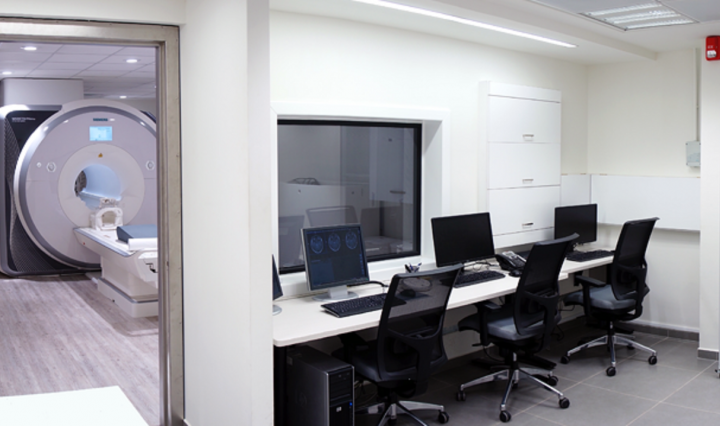MRI
Magnetic resonance imaging
Magnetic resonance imaging (MRI) provides a detailed, high-resolution image of the human brain, in a non-invasive manner. In our lab we use the following advanced imaging techniques:
- Diffusion MRI (dMRI):
Diffusion MRI (dMRI) is a non-invasive imaging technique, that enables us to measure the amount of water and anisotropy of water diffusion in myelinated neural fibers (white matter). This method enables us to measure differences in white matter pathways of clinical and control populations, and to map and quantify white matter pathways in the individual human brain. Studies that use dMRI have shown associations between white matter properties in specific pathways and various cognitive abilities.
- Functional MRI (fMRI):
Functional brain mapping using fMRI allows mapping human brain activity in a non-invasive manner. fMRI measures localized changes in blood oxygenation that co-occur with the neural activity underlying various behavioral tasks (including language, motor, visual, auditory, ad other tasks). Using fMRI we can learn about the neural systems involved in performing intricate cognitive processes, and track changes in brain activity that accompany learning in adult and developing brains.

Last Updated Date : 30/07/2019



